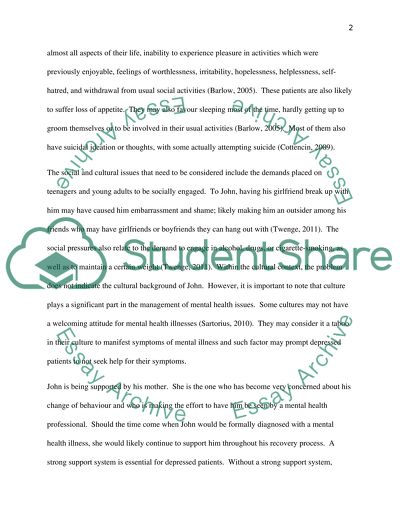Cite this document
(“Depression as a Mental Disease Essay Example | Topics and Well Written Essays - 1500 words”, n.d.)
Depression as a Mental Disease Essay Example | Topics and Well Written Essays - 1500 words. Retrieved from https://studentshare.org/health-sciences-medicine/1477404-depression-as-a-mental-disease
Depression as a Mental Disease Essay Example | Topics and Well Written Essays - 1500 words. Retrieved from https://studentshare.org/health-sciences-medicine/1477404-depression-as-a-mental-disease
(Depression As a Mental Disease Essay Example | Topics and Well Written Essays - 1500 Words)
Depression As a Mental Disease Essay Example | Topics and Well Written Essays - 1500 Words. https://studentshare.org/health-sciences-medicine/1477404-depression-as-a-mental-disease.
Depression As a Mental Disease Essay Example | Topics and Well Written Essays - 1500 Words. https://studentshare.org/health-sciences-medicine/1477404-depression-as-a-mental-disease.
“Depression As a Mental Disease Essay Example | Topics and Well Written Essays - 1500 Words”, n.d. https://studentshare.org/health-sciences-medicine/1477404-depression-as-a-mental-disease.


